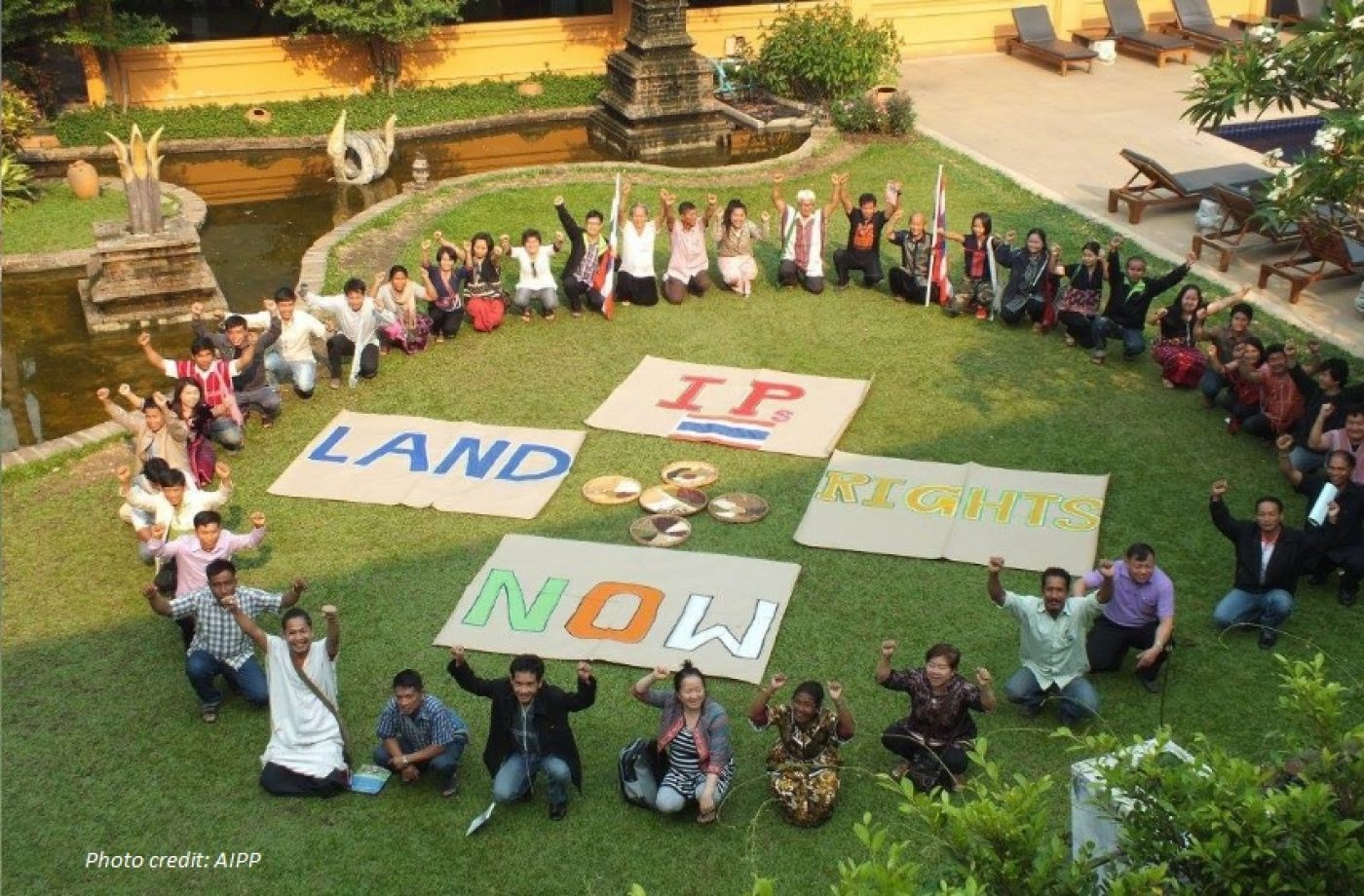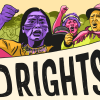Since the launch of the Global Call to Action on Indigenous and community land rights in March, over 200 organizations from across India, Bangladesh, Nepal, Malaysia, Indonesia, Philippines, Cambodia, Laos, Vietnam, Thailand, Myanmar and Taiwan as well as the Tananahu indigenous community, Maluku, Indonesia have joined the call.
Concrete activities under the banner #landrightsnow include the mapping out of Orang Asal territories in Malaysia lead by the Indigenous Peoples Network of Malaysia (JOAS). The focal point for 21 community non-governmental organizations working on indigenous rights and advocacy in Malaysia, JOAS has trained a team of community mappers who will map out all of Orang Asal ancestral lands – land that has been used by communities for generations but today is at risk due to insecure land rights. According to Jannie Lasimbang, Secretary General of JOAS “The alarming trend now is that communal areas including watersheds, hunting grounds, burial areas and forest all found within our traditional territories are being contested in courts as outside of our traditional territories. In an effort to secure our land rights, we have trained community mappers who will go to Orang Asal villages and work with communities to map out the land.”
In Myanmar the focus is on the newly adopted National Land Use Policy (NLUP) which will determine the distribution, use and management of the country’s land and related natural resources such as forests and rivers. The new NLUP is a positive step in particular as it recognizes Land Use Rights of the Ethnic Nationalities and Equal Rights of Men and Women. However, to ensure it is implemented its principles need to be enshrined in law to protect vulnerable communities from land grabs and forced evictions. On 5 March a first dialogue event was held with civil society organizations, indigenous peoples and the country’s new government to discuss the NLUP.
In Cambodia and Thailand, the Global Call brought together over 130 indigenous representatives to discuss the specific land struggles that they face, learn from each other and find ways of strengthening their work. The event ended with a press conference and a Declaration of the Network of Indigenous Peoples in Thailand (NIPT) on the Proposed Solutions to the Problems of Land and Resource Management by Indigenous Peoples.
Across the region, The Asia Indigenous People’s Pact (AIPP) is playing a key role in convening and mobilizing Indigenous Communities and organizations the Global Call to Action.
AIPP supports local struggles and initiatives in defense of land rights against mining, large dams, agribusiness, among others and builds partnerships and networks for joint policy advocacy and awareness-raising particularly in the area of indigenous people and sustainable resource management. Currently AIPP is promoting the GCA through a broad range of activities, such as translation of campaign materials to national languages, providing technical assistance to GCA activities, supporting community mapping for legal recognition in India; and mobilizing in Cambodia and Malaysia.
For 2016 the following activities are planned:
Actions to Mobilize and Empower more indigenous organizations and communities;
Encourage National Human Rights Institutions across Asia to undertake Land Inquiries as done in Malaysia and Indonesia;
Investigate land rights issues related to trade and investments for policy advocacy and broader support in ASEAN countries;
Strengthen collaboration at the national level to pursue policy advocacy on the recognition of land rights in Thailand and Nepal;
Call for proper implementation of the legal collective land rights recognition in India, Malaysia, Cambodia and the Philippines, among others;
Mobilize indigenous communities and organizations across Asia to actively participate in the #LandRIghtsNow Global Mobilization Week 02-09 August which culminates on World Indigenous People’s Day.
Read more about the GCA in Asia, get access to campaign material and join here.
Co-written by Nona Bouwman



